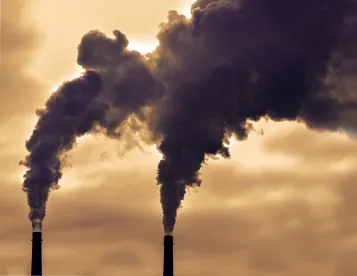The Federal Energy Regulatory Commission ("FERC"), which regulates the transmission and wholesale sale of electricity and natural gas, and also oversees the U.S. pipeline infrastructure, including the review process for interstate natural gas pipelines, has undertaken efforts under the Biden Administration to combat climate change and to advance environmental goals. Specifically, Chairman Glick has emphasized the need to consider the climate impact of new gas pipelines when evaluating proposed expansions of U.S. pipeline infrastructure and has also taken steps to address environmental discrimination by focusing on the impact of siting power infrastructure in poor communities of color.
These efforts to advance an environmental agenda at FERC have provoked significant pushback from lawmakers, including Senate Republicans and Senator Manchin (D-W.Va.). According to Politico, Senator Manchin "has openly expressed his irritation with Glick." Consequently, Chairman Glick appears less likely to receive an additional term in office presiding over FERC. Should Chairman Glick fail to be re-appointed, that would be at least the second presidential nomination that Senator Manchin has recently torpedoed due to the perception that the nominee would advance an environmental regulatory agenda, specifically efforts to address climate change. (The other recently rejected nominee was Raskin to the Federal Reserve.)
Leaving aside the particular situation involving Chairman Glick, these circumstances demonstrate the considerable restraints under which the Biden Administration operates in seeking to advance its environmental regulatory agenda. In an evenly-divided Senate, each individual Senator can wield an outsized influence--and President Biden is dependent on the vote of Senator Manchin, a conservative Democrat with extensive ties to the fossil fuel industry. Bearing this in mind, it is unsurprising that the Biden Administration has been disappointing to many environmental activists. And, considering the totality of the circumstances, it is more likely that the Biden Administration will concentrate its efforts where they are less likely to be stymied by political obstacles.
Glick . . . has pushed policies that angered prominent lawmakers, including many Republicans — and, most crucially, Senate Energy and Natural Resources Chair Joe Manchin (D-W.Va.), who as the upper chamber’s swing vote has weakened much of Biden’s climate agenda. That’s put Glick’s future at risk after his current term on the commission ends in June.
Former FERC staff say Glick has launched perhaps the most far-reaching agenda of any leader ever at the commission, which regulates U.S. power markets and approves the siting of gas pipeline infrastructure. His efforts to reshape the agency’s mission include conducting closer examinations of the climate impacts of new energy infrastructure, as well as the effects of existing natural gas pipelines and fossil fuel facilities on low-income areas and minority communities where they are often located.
"Biden's most effective climate warrior faces potential doom in the Senate" - Politico




 />i
/>i
